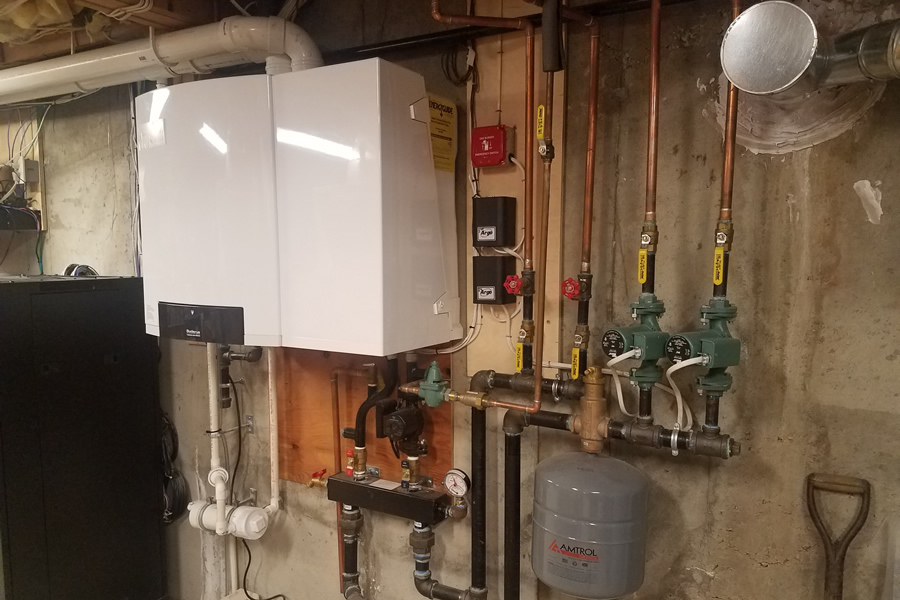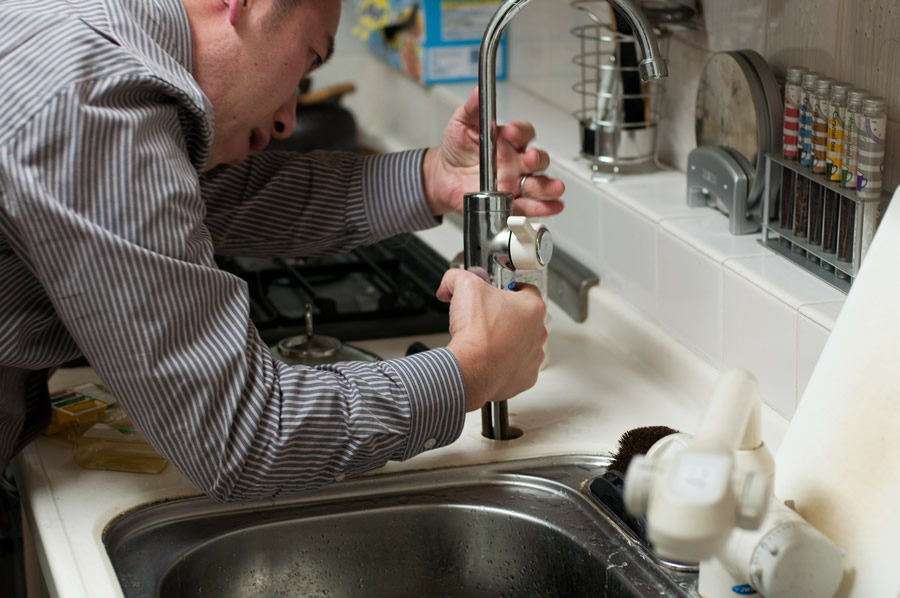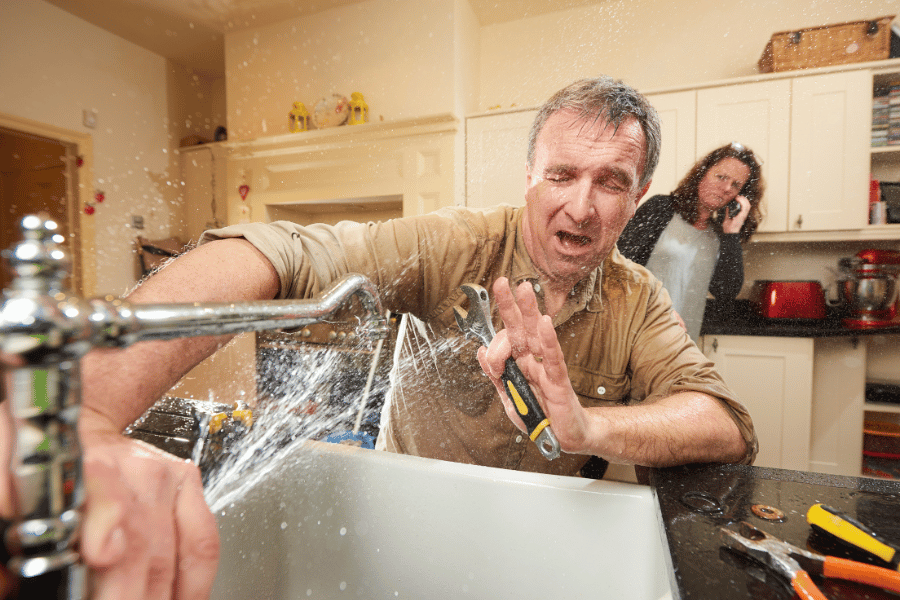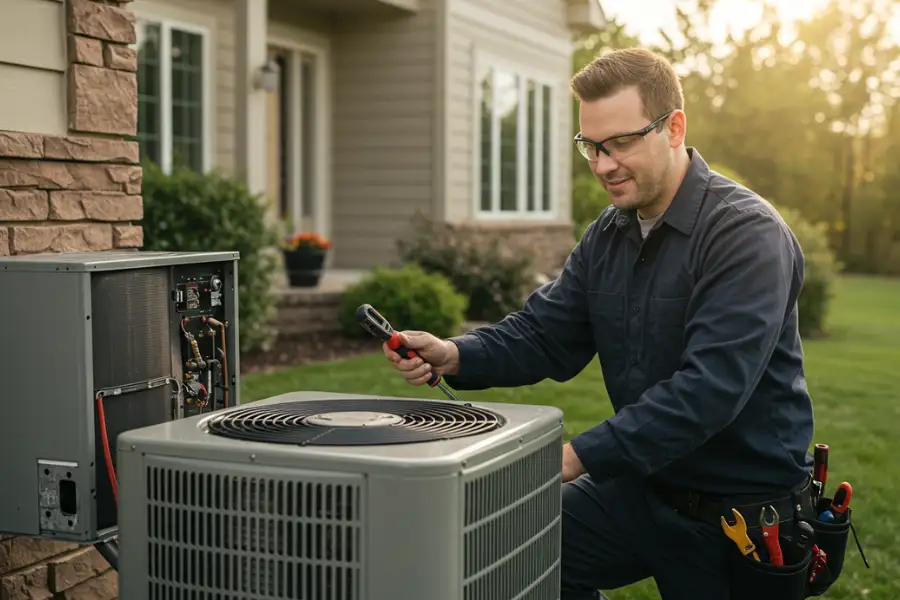
Top 6 Gas And Oil Heating Maintenance Tips
January 5, 2018
Money Saving Plumbing and Heating Tips
You know there are many things that we can do to save money, improve efficiency and reduce the amount of energy and water that we all consume. Here is a helpful list of tips and frequently asked questions that I have come across over my many years in the plumbing and heating industry. Take a few minutes to read through the items below and please don't hesitate to contact us if you have any questions. We hope you find them helpful.
Why is my toilet water running?
One of the most common questions asked and one of the easier things to fix. The first place to look is the handle-flapper connection, which may be corrected with a simple adjustment. The usual cause is that the flap in the bottom of the tank isn’t sealing shut. You can easily take the top off the tank and watch the rubber flap; if it doesn’t close some of the water is flowing out through the unsealed flap preventing the float ball trigger to be activated to stop the flow, since the water never reaches the fill line. Jiggling the handle can stop the running water because it is attached to the rubber flap with a chain, sealing the flap more securely.
Water at the base of your toilet or a running toilet can indicate a leak and that can drive up your water bill, so you shouldn’t ignore it. To see if it is a leak you can find out by testing it yourself. Simply place a few drops of food coloring in the TANK, not the bowl. Leave it for 20 minutes and if there’s any discoloration inside the bowl you have got a confirmed leak. If you find a problem, give us a call.
Money Saving Tip: How old is your toilet? If your house was built in the '90s and your plumbing has never been updated, chances are you don’t have a water-efficient 1.6 gallon per flush toilet. You are wasting water with every flush. We can help you replace your old toilets and start saving water!
Why do my drains clog and how can I unclog them?
Drains typically get clogged because people are not careful of what they put in them, especially the kitchen. Bathroom drains usually get clogged from soap residue, shampoos and hair. Harsh chemicals can actually cause more damage to your pipes and create clogs, so if you are going to use a drain cleaner use a biologically active one. If your drains are clogged it’s probably time to speak to a professional about a solution rather than using store bought solutions. Clearing the blockages is essential to avoiding pipe replacement.
Money Saving Tip: Be conscious of what goes down the drains and try not to rinse fats or cooking oils down the kitchen sink. Liquid fats solidify in the cold pipes and create clogs. To help prevent clogs, fit all your tubs and shower drains with a strainer that catches hair and soap chips, and clean the strainer regularly. If you are going to use a drain cleaner, treat them regularly with a drain cleaner such as Bio-Clean. The good bacteria and enzymes eat away the clogs without damaging the pipes.
Can a plumber fix frozen pipes?
Chilling weather often brings frozen pipes. If the pipes have frozen and burst, a plumber can fix them. If the pipes are frozen but have not burst, a plumber can remedy them by applying a heat gun to thaw them. If you have frozen pipes, a homeowner could use a hair dryer to start the thawing process in the interim. Before disaster strikes, eliminate this potential hazard as soon as you notice the problem by calling in the professionals.
Money Saving Tip: These tips can help prevent pipes from freezing and in turn save you a lot of money.
Have good home insulation, this benefits your heating and plumbing systems. Insulating your pipes will protect them when temperatures plummet and won’t experience this change in weather.
Sealing air leaks will keep cold air from traveling around your pipes. Cold air leaks are one of the most common reasons pipes freeze. Wrap your pipes with heat tape or heat-controlling cables. Wrapping your pipes in either of these will stabilize temperatures throughout the year and prevent frozen pipes.
Why is my shower leaking?
Leaky shower head! It is important not to ignore it, not only are you wasting water but the water could be causing a larger problem, damage inside the wall. When water constantly drools from the shower head, the problem is usually caused by the shower valve. Even more concerning is the shower valve that leaks inside the wall. Over time, water dribbling into the wall can cause dry rot, mold, and structural problems that can be both hazardous and very expensive to repair. Call in the experts to identify the problem and find a solution.
Money Saving Tip: If your shower head has a leak take action immediately, it will save you money in the long run. A leak can usually be fixed by tightening the connection between the shower head and the pipe stem by using a wrench or Teflon tape, which you can find at your local hardware store.
How can I prevent flooding the spring?
Spring brings lots of rain and flooding too! When the ground begins to thaw, melt all the snow and the showers roll in, basements and other areas of the house can get flooded as a result. An old sump pump or a lack of a pump can cause serious flooding issues. Speak with the experts about sump pumps and other solutions to your chronic flooding problems! Call on the professionals to find and fix the problem.
Money Saving Tip: Check your sump pump and be sure that it is working properly by pouring a bucket of water in the pit and then activating the switch. Also, be sure the discharge line is clear of leaves or other debris. If you don’t have a sump pump now is the time to invest in one. This alone could save you a lot of aggravation and money. Keep an eye out for leaky faucets, water under your appliances, water stains on the walls or ceiling and musty smells. Catching these problems can prevent an even bigger one.
Why does my water smell?
Beware of bad smells from your running water! If you have a foul odor during the first few minutes of running the hot tap, it could be due to a faulty anode rod in your water heater. The most common cause of smelly water is anaerobic bacteria that exist in some water and react with the magnesium and aluminum sacrificial anodes that come with most water heaters to produce hydrogen sulfide gas, making the classic rotten egg odor. If you don't take care of the problem corrosion results, which can eat away at the inside of your tank.
What causes low water pressure and what can I do about it?
Low water pressure can be caused by many things. Simple problems like the shut-off valve being closed or a faucet being blocked can cause low water pressure. More serious issues like plumbing blockages or water leaks decrease water pressure as well. When you need to increase water pressure you can check the simple things yourself. However, when it comes to the bigger issues like pipe erosion, blockage, or leaks, it’s best to consult a professional.
Money Saving Tip: By checking valves and monitoring water usage amounts and schedules, you can either eliminate the problem or identify the need to call in the reinforcements which can save you money down the line.
Why my garbage disposal is not working?
There are a few reasons why the garbage disposal is not working. It could be a tripped circuit, a stuck flywheel, a clog, a leak or it’s just busted. When trying to determine why the disposal is not working, shut it off first. Using the disposal wrench or a stick of some sort may help unclog or fix a stuck flywheel of the disposal. If it’s a leak you can tighten the bolts or use “plumber’s putty” to seal it. If you are not a DIY person then call in a professional, chances are it will be an easy fix for them.
Money Saving Tip: Keep your garbage disposal grinding by avoiding putting certain foods in it. Pasta, rice, carrots, potatoes, and any other water-absorbing items could expand when wet and cause a clog. Always run cold water when grinding to move the waste all the way down the drain lines. Fats and grease congeal and harden in cold water and can be flushed through the system. Hot water should not be used because it can dissolve fats and grease, which may then accumulate in the drain line. For the most part, though, disposers are self-cleaning. If you have a big problem call a professional to help.
My heating system isn’t working properly?
Thermostat problems are the most common reason your home is not reaching the set temperatures. Other causes could be a clog in the duct or the filters need to be cleaned or replaced. It’s best to contact a professional if the heating system is not working.
Money Saving Tip: Keep your heating system running well by cleaning or replacing the filters once a month. Also clean your air registers, baseboard heaters, and radiators as needed, and make sure they’re not blocked. These steps will help keep your heating system stable and minimize potential issues with exorbitant fees.
How Long Does a Hot Water Heater Last?
Most water heaters have about a fifteen-year lifespan. Of course, that’s just an estimate; some may last shorter or longer. Yearly maintenance will increase the longevity of your water heater.
Money Saving Tip: The best tip for extending the life of a traditional tank water heater is to flush out the tank at least once every year. As water heaters grow older, they accumulate sediment and lime deposits. If these deposits are not removed periodically, the sediment will create a barrier between the burner and the water, greatly reducing the water heater's performance. Whether your heater is gas or electric, it will have a hose bib near its base. Set the heater to its ‘vacation’ setting. Turn off the cold water supply to the tank, and open up the hot water on one or two faucets elsewhere in the house. Then simply hook up a hose to the bib, run it to your floor drain or somewhere else that the water can drain to safely, and run the tank out. To learn more about this and how to prolong the life of your water heater call a professional.
When to call a plumber?
Sometimes we are not sure if we need to call a plumber. We sometimes wait to see if the problems persist or go away, and by then the problem is way too big to handle on our own. There are several things to consider when you have a plumbing or heating issue; your own skill level and experience in making repairs, whether you have the proper tools (and know how to use them safely), the potential for water damage if something goes wrong, and the urgency of the problem. If you can’t identify the problem or feel comfortable repairing it yourself, call a professional plumber, it could actually save you money in the end.
More money saving tips
- Save gallons of water by only running your washing machine and dishwasher when they’re completely full. Save up to 4 gallons a minute just by turning off the water while brushing your teeth until you’re ready to rinse. Save hundreds of gallons a week!
- When washing your car, use a bucket of soapy water and then rinse with a hose and nozzle. By turning the water off until you’re ready to rinse, you could save as much as 100 gallons of water.
- Natural gas heat can save you money. If you’ve got a gas furnace or stove, consider a gas hot water heater as well. You’ll save money extending the gas line to your water heater, as natural gas and propane water heaters are about 3 times less expensive to operate than the electric ones.
- Check the temperature setting on the water heater. It should be set no higher than 120°F to prevent scalding and reduce energy use.
- Pour a gallon of water into infrequently used drains to fill the trap and prevent odors in the home. Slow floor drains should be snaked to ensure they will carry away water quickly in the event of a flood.
- If you do not own a programmable thermostat, invest in one. Honeywell, a leader in control technology, estimates that homeowners can get one to three months of free heating/cooling just by installing a programmable thermostat.
- Water Heater Flood Detector Auto Shutoff
- Water heaters are under constant pressure and they rust from the inside out so you don't know there's a problem until it's too late. When they do go, they can release a huge amount of water very quickly. With a Water Heater Flood Detector Auto
- Shutoff, as soon as the device senses the smallest bit of water on the floor, it will sound a loud alarm and automatically turn off the water heater and water supply minimizing the amount of damage.




